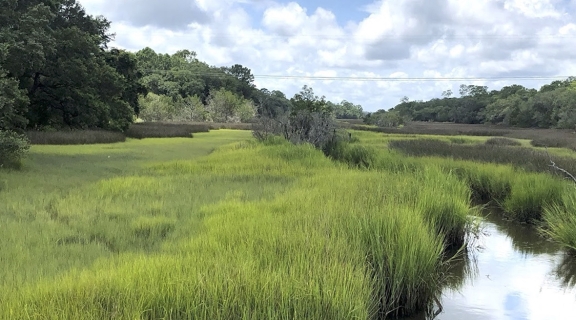
Rosenberg Institute Seminar Series - Erik Sotka
Overview
Erik Sotka, Professor of Biology, College of Charleston
Good thing, bad thing: Rapid evolution of native salt marshes and an introduced seaweed
All around us, microbes, animals, and plants are adapting to our rapidly changing planet. Such rapid evolution is most familiar to us when it is a “bad” thing. Microbes evolve resistance to our antibiotics and medicines which lowers human health outcomes, or insect pests and weedy plants evolve resistance to pesticides and herbicides and thus increase our economic costs. Rapid evolution can be a “good” thing when a species critical to human societies adapts to a changing environment. In this talk, I present rapid evolution as “good” and “bad” using examples from South Carolina estuaries: local adaptation of the native salt marsh plant Spartina alterniflora and rapid evolution of an introduced Asian red seaweed Gracilaria vermiculophylla.
I am an evolutionary ecologist, combining tools from natural history, manipulative field experiments, population genetics, and chemical ecology. In recent years, my funded research has focused on rapid evolution of invasive species and population responses to warming and rising seas. As model systems, our laboratory utilizes a broad suite of marine biodiversity and habitats.